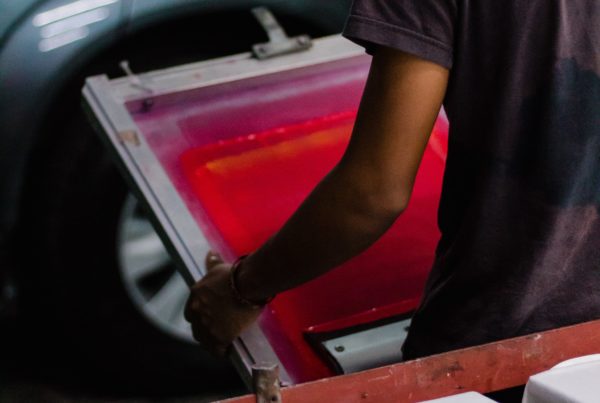The ethical consumerism bandwagon is more like a bullet train than a trundling horse-drawn cart, driving through more and more industries, and textiles is no exception. Many will see this as a move in the right direction – the knowledge that a little under one fortieth (2.4%) of the world’s arable land is planted with cotton, yet cotton accounts for almost a quarter (24%) of global insecticide use, is disturbing to say the least .
The Organic Exchange, whose annual conference, in the Netherlands on September 11-15, 2006, brings together the captains of the cotton industry, will look at the entire organic cotton cycle from farming, supply chain and retail perspectives and will seek to further the cause for organic cotton usage. Whilst companies that supply ethical product to the promotions industry may be rubbing their hands with glee at this growing support for the cause, the fact is that strong market conditions are causing problems, with the supply of certified organic cotton now lagging behind demand. Even Nike, the largest retail user of organic cotton in the world and one of the sponsors of the conference, admits on its website that among the challenges it faces are the availability of cotton fibre and how to buy it at a competitive price. The question is, will the continuing popularity of organic cotton mean that big manufacturers like Nike or Marks and Spencer buy up the bulk of the available certified cotton; leaving the smaller suppliers, who provide the promotions industry with eco-friendly products, with higher costs – resulting in higher unit prices for those of us that sell the end-product?
We at Indigo Clothing jumped at the opportunity to supply organic cotton products when Saf contacted us last summer with an offer to promote their organic clothing range. What specifically attracted us to Saf was their choice of colours as they allowed us to offer something other than the traditional ecru/muddy brown colours. As a company whose original client list consisted of students, a strong ethical policy has always been an important component of our business ethos and being able to offer something that clearly had green credentials was a definite must. After a year of supplying organic products and having considered a number of other manufacturers and suppliers, we are concerned that the growing high street popularity of organic cotton is going to make it even harder to sell what was already a highly priced product. Our organic range has prompted a lot of interest from our clients and we have featured it heavily on our website, but when it has come down to making a purchasing decision, organic has simply not been a viable option for many because of price.
Ultimately, I believe it comes down to simple psychology called ‘reference price formation’. When a consumer is buying goods – t-shirts, for example – it is believed that a consumer evaluates price in relation to their belief about what something is worth, known as the reference price (Rosch, 1975). Because t-shirts are a product that consumers often have a lot of exposure to, they have a strongly formed reference price. In other words, a consumer has a good idea of how much they are willing to pay. Across sectors, organic products usually command a premium (for example, we know that an organic carrot at a major supermarket chain costs more than a ‘normal’ carrot). Consequently, it is predicted that consumers are increasing their reference price – but not enough when it comes to organic t-shirts, as despite their ethical credentials the price is simply too far from the reference price. Larger companies looking for ways to tick the ‘Corporate Social Responsibility’ (CSR) box can do this more effectively by buying other ethical products such as recycled promotional gifts like pencils, whose price is far closer to the reference price for stationery.
Therefore, those in the business of selling t-shirts are faced with a dilemma. The media and the high street stores are driving a growing desire for organic product but suppliers are faced with high costs, as demand now outstrips supply and a consumer will only pay so much for white t-shirt. We can either reduce our prices (and our margins) to try to encourage organic cotton sales, or wait for a bigger supplier such as Fruit of the Loom or Hanes to enter the organic cotton marketplace. With their economies of scale there is a strong possibility they would offer organic cotton products at lower price than the current suppliers. The other alternative is to simply do nothing for the time being, continue offering expensive organic cotton products and simply get the brand benefit of being linked to the fair-trade movement whilst in reality still selling a majority of traditional cotton goods. Sadly, economics is preventing green products from being great products.
[Note: This article was written for a future edition of Printwear and Promotion, a trade publication. Alex is a regular contributor]



Awareness is the key I believe, as we enter into a new era of global awareness, the next generation are going to be more environmentally savvy and ethical values will out weigh value for money. Consideration of these ethical values will include local support of struggling economies, growth for third world countries, moral environmental decisions etc
Lets look at the whole picture. The task is not simply to persuade people to buy organic products but to be aware of who they are buying from and who their money is going to. We know this and we have to make sure that the word keeps spreading that diversity and quality are better than a quick consumer fix.